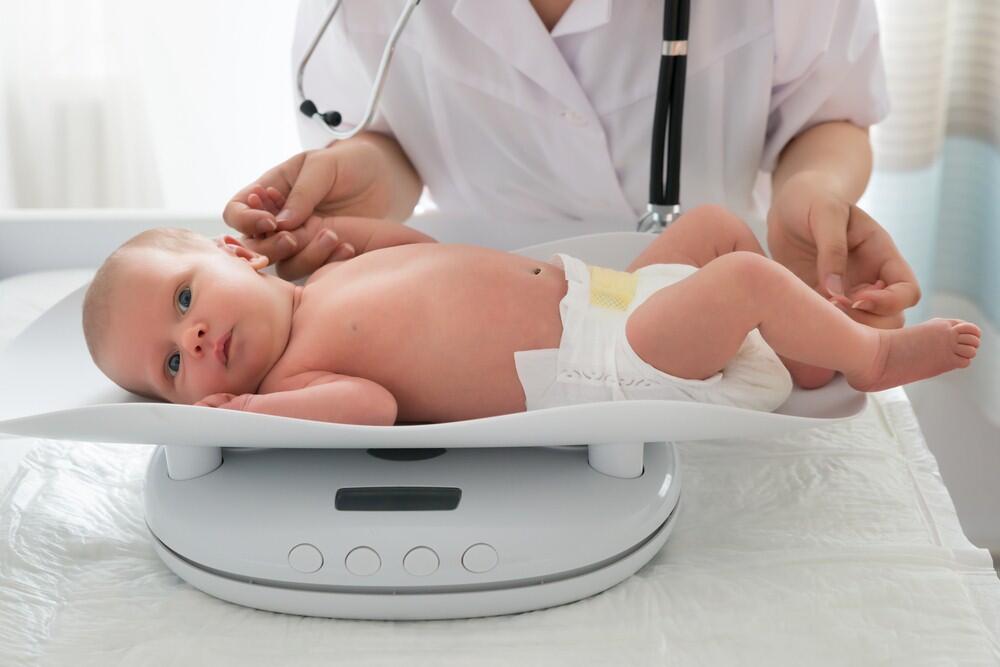A baby's first year can often be a tumultuous one. Vaccinations, regular checkups and doctor recommendations are commonplace. In order to make sense in this parental sphere of confusion, we've prepared a sort of parental guide to help you through it.
An X-Ray to diagnose DDH
Developmental Dysplasia of the hip is not uncommon among newborns, and can vary in severity. It could be just having mild trouble spreading the legs all the way to feeling like the joint is dislocated.
It's usually diagnosed in a routine physical examination performed by a pediatrician. In such cases, it helps to keep the baby with his knee joints spread to help the joint strengthen correctly. This can be done using baby straps, specialized pillows and casts that maintain the proper position for the joints to align.
However, not all conditions are easily diagnosed, necessitating an x-ray to be sure. The exam is usually performed around six weeks after birth.
Regular checkups at a family health center
Your family nurse will likely be the most familiar health professional when it comes to the baby's most meaningful and potentially perilous instances during the first year of life.
The nurse will closely monitor the baby's physical development, reflexes, and behavioral patterns as it pertains to his health and other indicators. He or she will be on the lookout for potential problems such as physical limitations, developmental and mental stagnations, etc.
The nurse will also guide first-time parents on how to empower themselves and their roles in the baby's life. It pertains to matters such as nursing the baby, proper nutritional guidelines, timely vaccinations, and more.
Infant nutrition
According to recommendations, it's okay to begin weaning your baby and introducing solids at around four months old. Either way, it's recommended to avoid delaying the introduction of solids beyond six months of age.
If some family members are allergic, it's advised to tell your family physician prior to the introduction of solids so the baby can be examined thoroughly before potentially problematic foods, like nuts or gluten, are given.
Iron-rich diets
The Israeli Health Ministry recommends an iron-rich nutritional regiment to offset any chance of anemia. Dr. Joan Ya'akobovich clarifies the issue.
What is recommended?
Starting at four months of age, iron supplements of 7.5 MG a day are recommended until the baby is six months, from which point you can elevate it to 15 MG until the baby is 18 months old.
It is advised to avoid giving the supplements at the same time the baby is consuming dairy products, and you want to stick to a particular daily schedule, as it helps regulate the baby's metabolism.
What makes iron supplements so important?
Iron goes a long way into facilitating the proper amount of oxygen in the red blood cells being transferred all over the body. If neglected, it could potentially cause brain issues, insufficient weight gain, fatigue and other developmental issues.
Side effects of iron supplements are mainly diarrhea and constipation. In that case, boiling plums in water, cooling them off and then feeding the baby helps alleviate that phenomenon.
Sleeping time
Proper sleep is vital to the baby's cognitive development, and the recommended durations are as follows:
Birth to three months old: A total of 11 to 19 hours every 24 hours.
Four to twelve months old: A total of 10 to 18 hours every 24 hours.
Thirteen to 24 months old: A total of 9 to 16 hours every 24 hours.
It's worth noting that each baby is different and these numbers are guidelines, not obligations. As long as the baby seems alert, happy and active, there's no reason for concern.
Initially, babies sleep all day long, but as their body secretes more Melatonin, they begin sleeping more at night. It's important to keep the baby's room dark and quiet at night, and to feed him and then put him right back to sleep if he wakes in the middle of the night.
Also, in order to avoid situations when the baby would not fall asleep unless he's being held, it's important to get him used to sleeping in his own bed as early as possible.
SIDS
Sudden infant death syndrome, while quite rare, is also not a problem that can be diagnosed ahead of time. It is believed that the best way to reduce probability is to avoid putting the baby to sleep on his stomach, avoid placing soft objects near the baby when he's falling asleep and to make sure the blanket level is not above his chest.
Also, it's vital to not overheat the baby's room as they are unable to regulate their own body temperatures and most importantly - avoid smoking altogether.
First tooth
The baby's first tooth makes an appearance at around six months of age. Most teeth should be well visible at three years of age. It's recommended to make the baby's first dental exam at around one year old. The doctor will likely give guidelines and tips on how to properly brush the baby's teeth, and do so twice a day. (Very gently, of course!)
It's also important to be on the lookout for "Young age Caries", which is different from the adult version, as it progresses more rapidly and could cause all of the baby's teeth to wither and fall.
To reduce the risk of caries, it's recommended to avoid giving the baby beverages that contain high levels of sugar and sweetness, as the ingredients found in these beverages are unhealthy from both a dental and nutritional standpoint.
First year vaccinations
The baby's quadruple shot (vaccinations against measles, rubella, mumps and chickenpox) should be given at 12 months of age. Prior to that point, the baby's body is unable to produce the sufficient amount of antibodies anyway.
However, shots against tetanus, diphtheria, pertussis, polio and influenza (the common cold) should be given as early as two months old. All five of those shots should be given at the same time, or at least as close to each other as possible.
Vision examinations
Vision examinations begin right after birth, but at two months of age, the family center center conducts a vision test in which a baby follows a toy with his eyes as the doctor moves it about 12 inches in front of him.
An additional, deeper exam of the baby's vision should be conducted up to 12 months of age, where the doctor can determine if any vision impairment is likely or already under way.





